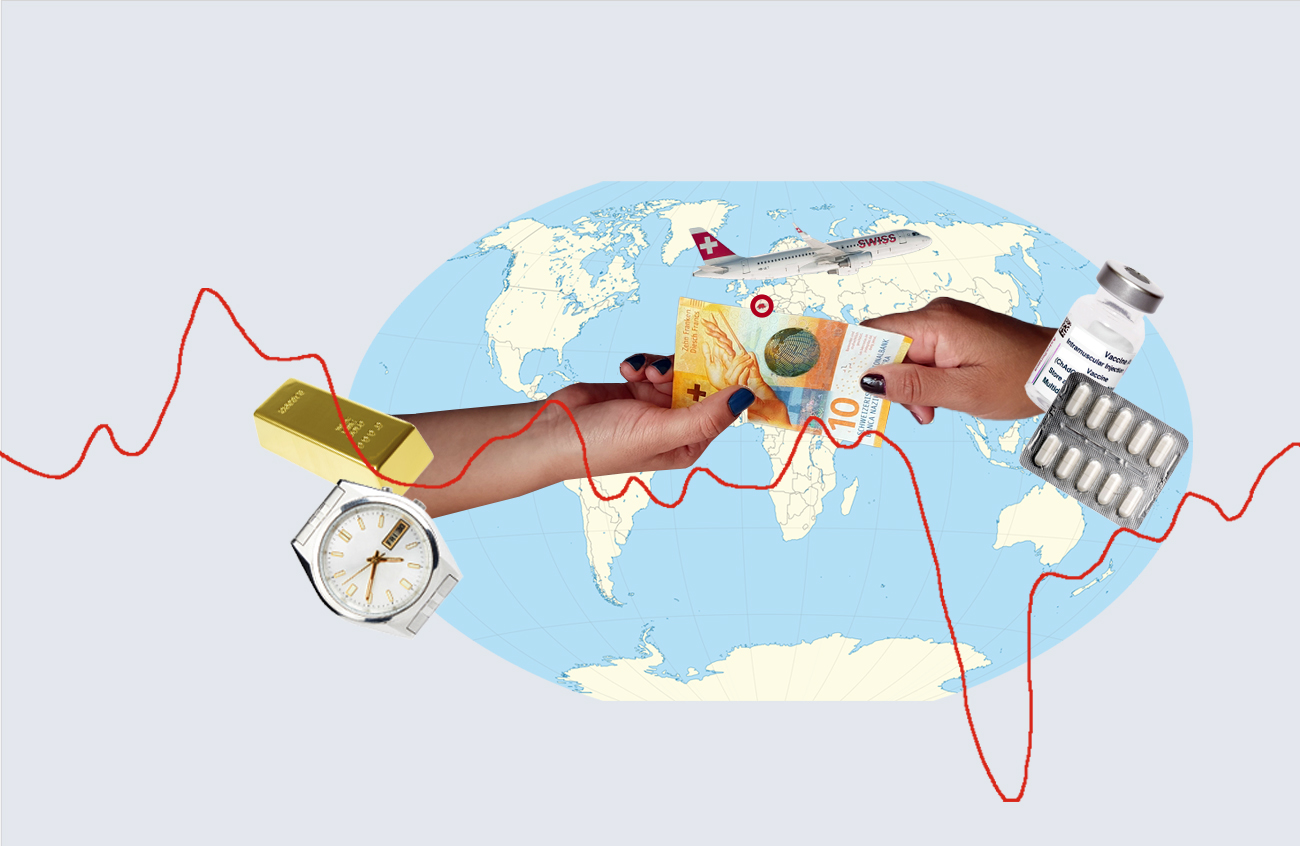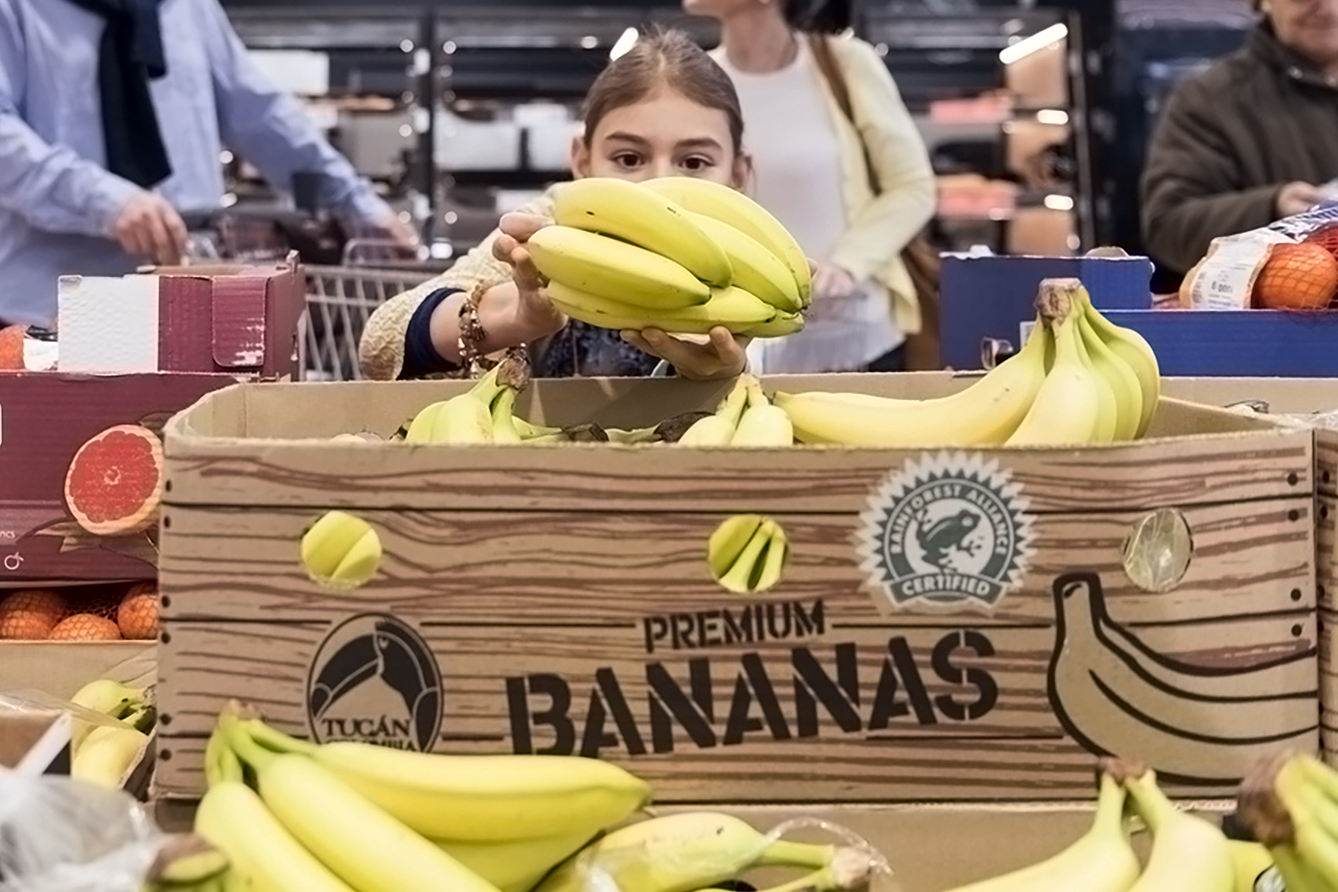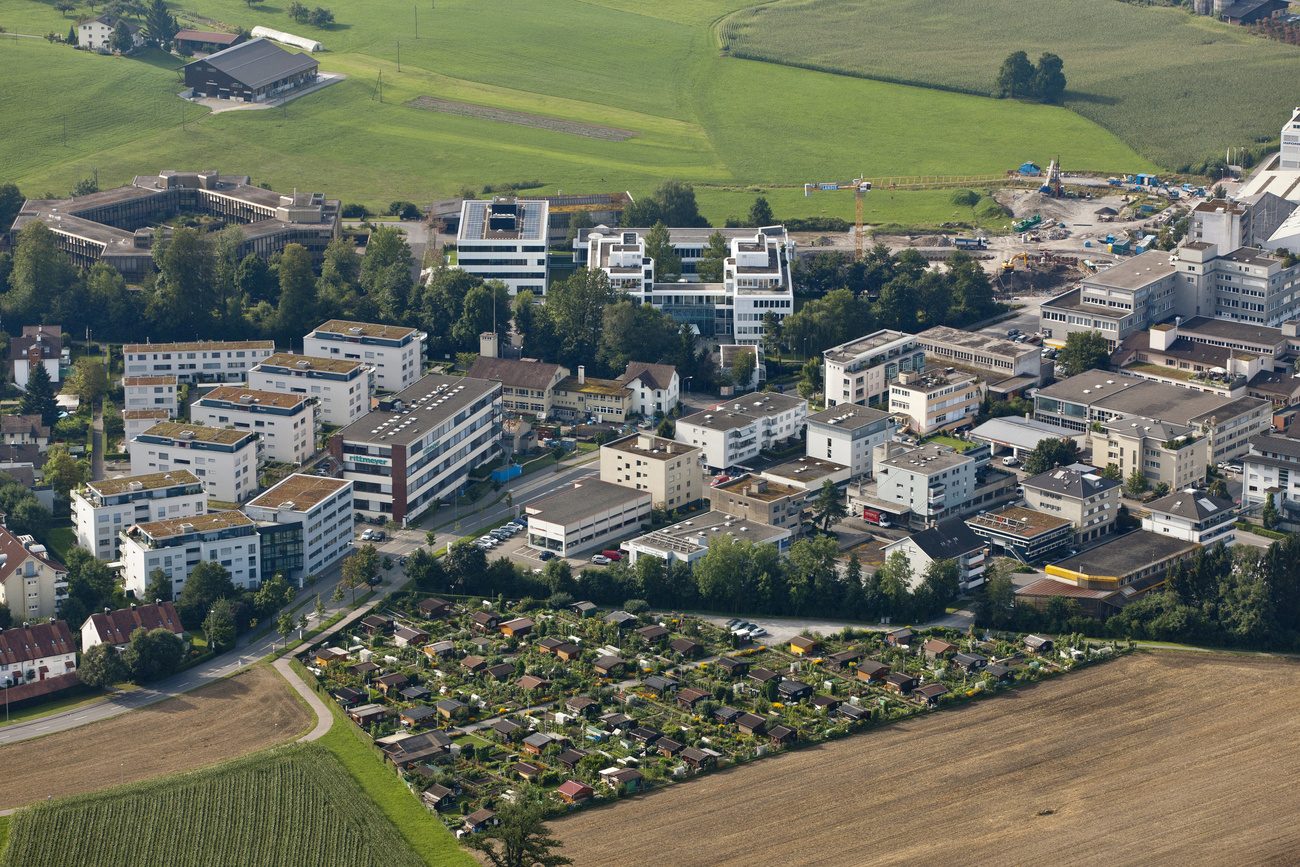
Six reasons why Switzerland is one of the most globalised countries

Switzerland regularly ranks first in the Globalisation Index. Reasons include the country’s vibrant trade and financial centre, the presence of numerous international organisations and its small size. The following infographics help provide an analysis.
In December, the KOF Swiss Economic Institute – at the federal technology institute ETH Zurich – brought out the 2023 edition of its Globalisation IndexExternal link. It covered the year 2021.
Covid-19 followed by the wars in Ukraine and Gaza have accelerated a structural trend in the works since Donald Trump came into office as President of the United States in 2017: that of redefining globalisation as we have experienced it over the past three decades. On the one hand Western countries weary of the negative effects of open trade policies are resorting to populist and more protectionist measures embracing among others an anti-China discourse. On the other what is referred to as the Global South, want another type of globalisation with their interests at the centre.
These shifts are affecting foreign policies, trade, investment and how global companies position themselves in an increasingly divided world against the backdrop of slowing growth in China.
These include Switzerland’s many multinational companies which benefit from sourcing raw materials from across the globe and sell worldwide. They are dependent on stable commodity prices, fluid supply chains and open markets.
In this series we look at how this geopolitical landscape is impacting Switzerland’s largest global companies. Topics covered include: how China still fares well for some niche high-end consumer goods, reshoring the pharmaceutical industry to Europe, can India be the next China and what a more inclusive globalisation could look like.
Once again, Switzerland features at the top of the league of globalised countries, with an overall score of 91/100 (100 corresponds to “total” globalisation), followed by Belgium and the Netherlands, which each garner 90/100. Over the past decade, these three countries have consistently led the ranking.
So how can a landlocked country, whose most populated city has fewer than 500,000 inhabitants, be the most globalised?
There are different definitions of globalisation, and therefore different ways of measuring it. The index drawn up by the ETH Zurich research centre is one of the most widely cited, as it enables international comparisons to be made and provides an overview of developments since 1970.
The index combines some 40 variables which consider not only the economic side of globalisation, but also the social and political aspects. All three dimensions are given equal weight in the final result.
Like any index, it also has its limitations. The choice of variables depends very much on the data available. The KOF has been taken to task for the very idea of establishing a globalisation ranking, which some see as a value judgement or a promotion of the Western way of life. The detailed methodology, the authors’ choices and the full list of indicators can all be found on the KOFExternal link website
1. Switzerland is globalised in every way
Switzerland does not come first but it scores highly in each of the dimensions considered by the index: 86.5/100 (8th place) for the economic side, 90/100 (2nd) for the social side and 96/100 (8th) for the political side.
Other countries have more mixed profiles, ranking very high in one area but lower in others. Thus, the United States is less globalised economically (66/100) but very globalised politically (92/100).
2. Switzerland trades a lot with other countries
The KOF cites the foreign trade levels of Switzerland, the Netherlands and Belgium as a major factor behind their high ranking in economic globalisation. According to the World BankExternal link, exports of goods and services accounted for over 70% of Swiss gross domestic product (GDP) in 2021, which is high by international standards – the average was 50% in the European Union (EU) and less than 30% globally.
Switzerland’s export economy is based mainly on high added-value products: pharmaceuticals and chemicals, watchmaking and machinery.
At 60%, the share of imports in Swiss GDP is also higher than the average in the neighbouring countries (31% in France, 42% in Germany and 47% on average in the EU) and worldwide (28%).
Despite practising a kind of selective protectionism, particularly on agricultural products, Switzerland is one of the most open economiesExternal link, with almost no taxes on foreign trade.External link

More
Why Switzerland is resistant to food-price inflation
The intensity of the country’s trade owes much to its geographical location at the heart of Europe. All nations in the top ten are European and, for the most part, members of the EU, which links them economically, socially and politically. They include the Scandinavian countries, Germany, Austria, the United Kingdom and France.
“Most of them are specialised, industrial and wealthy countries,” explains Tim Reinicke, a researcher at the KOF. The high level of interdependence among European countries explains why their foreign trade is so dynamic. “Switzerland produces many of its pharmaceutical products in Slovenia; it sells machinery to Germany, which in turn sells cars to Switzerland,” he adds.
3. Switzerland attracts money from all over the world
Another major pillar of Swiss globalisation is the international attractiveness of its financial centre and the stability of its currency. This explains why a lot of foreign money is spent or invested in Switzerland, the KOF points out.
“Switzerland plays an important role in the global financial sector,” Reinicke notes. “It is a major platform for commodity trading, and a lot of money passes through the country.”
Switzerland is a fertile ground for multinationals, many of which are based there.

More
Swiss multinationals: global heavyweights in high-risk sectors
4. The population is highly mobile
Economic considerations aside, Switzerland ranks highly in most of the indicators used by the KOF to measure the degree of globalisation of people.
It is the developed country with the highest proportion of residents from migrant backgrounds, after Luxembourg. A quarter of those living in Switzerland are foreigners, and almost 30% were born abroad.
Although far behind France, the world’s leading tourist destination, Switzerland does attract touristsExternal link (nearly 12 million arrivals in 2019). It is also one of the OECD countries with the highest rate of international student mobilityExternal link (nearly 20%).
5. Switzerland is at the heart of global governance
But it is its political globalisation that garners Switzerland the highest score. It is represented by over 130 embassies and consulatesExternal link around the world, making it the 17th country globally for the absolute number of diplomatic representations abroad (China tops the list, with a total of 265 posts).
Switzerland is a member of a number of international organisations – including the United Nations, the Council of Europe and the Organisation for Security and Co-operation in Europe. It also hosts around 40External link of them, mainly in Geneva, which is one of the main hubs for international cooperation.
6. It is a small country
Most of the most globalised economies are small and, by their very nature, more dependent on others.
For countries with small domestic markets, and often with few natural resources, an open economy and ties with others are nearly a must if they are to be competitive on a global scale. A country’s small size also has an impact on people’s mobility.
Is Switzerland deglobalising?
Since 1970, the general trend has been towards increasing globalisation. The KOF explains that, historically, sharp rises and falls have been the result of major international events.
The main driver of globalisation was the collapse of the Soviet Union in the 1990s. The financial crisis of 2007–2008 disrupted the process, prompting many countries to take measures more focused on their national economies.
The Covid-19 pandemic also led to a sharp decline, from which Switzerland was largely spared thanks to its pharmaceutical exports and the role of Swiss industry in vaccine production. This was followed by a rebound in consumption in 2021. The effects of the war in Ukraine have not yet been captured by the index.
After years of general upward trend, however, a plateau seems to have been reached. Should this be seen as a decline in globalisation? The question is open to debate, with some studies suggesting that globalisation is doing very well, while others posit that the world has entered an age of deglobalisation, or one in which globalisation is shifting axis, with the rising strength of developing countries.
According to Reinicke of the KOF, the global economy is still beset by post-pandemic woes (supply-chain problems, bottlenecks, high inflation). The research centre declines to predict how this will affect different countries’ stance on globalisation in the future.
They may choose to follow two different paths in order to become more resilient to crises, the researcher explains: either produce more for themselves, which could be the choice of big countries (he cites the example of “America First”, advocated by Donald Trump in the United States), or, instead, bolster their international network so as to be better protected.
SWI swissinfo.ch will soon be devoting a new series to the topic of deglobalisation.
Translated from French by Julia Bassam/ds

In compliance with the JTI standards
More: SWI swissinfo.ch certified by the Journalism Trust Initiative





























You can find an overview of ongoing debates with our journalists here . Please join us!
If you want to start a conversation about a topic raised in this article or want to report factual errors, email us at english@swissinfo.ch.